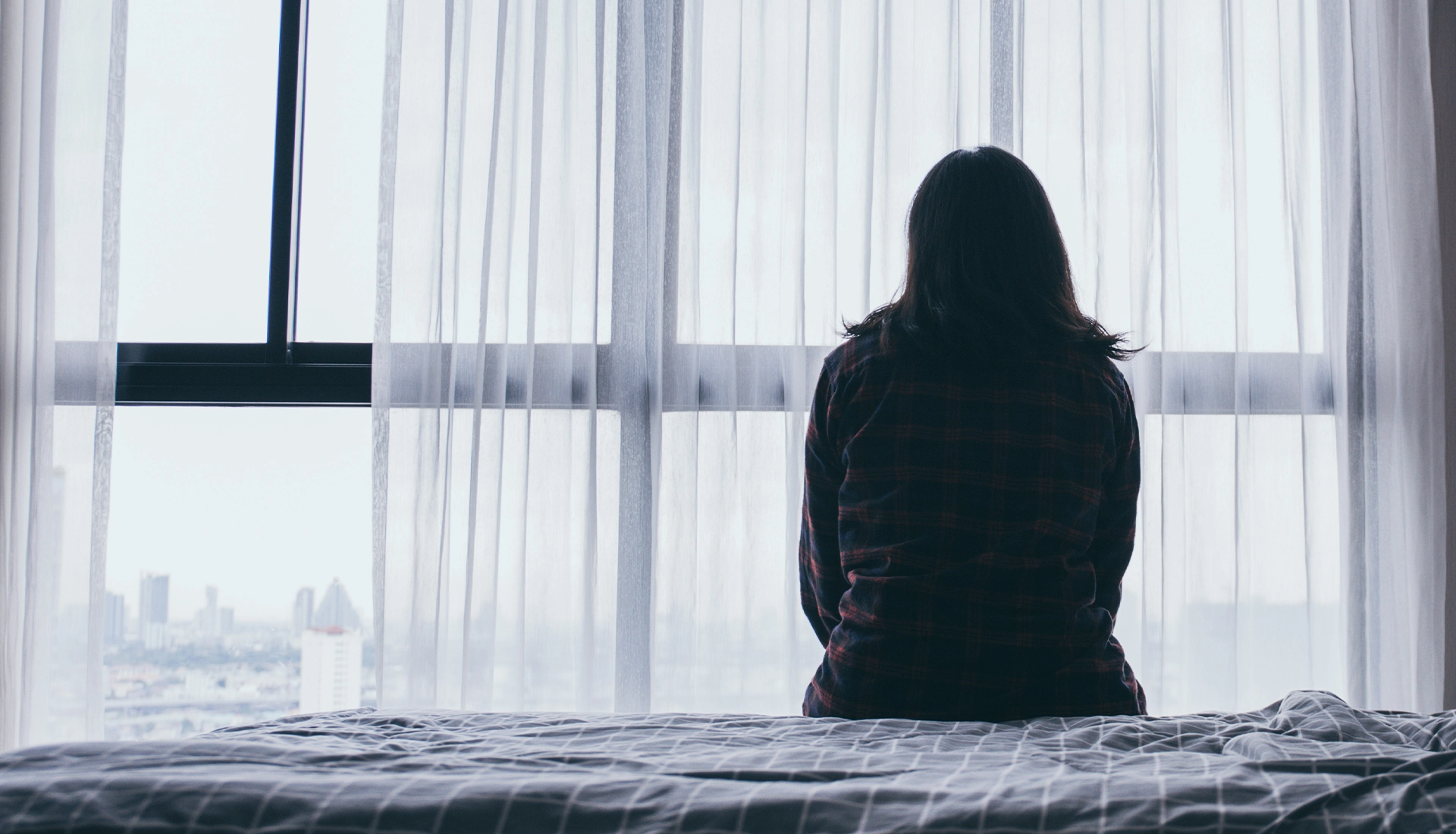How is depression treated? Treatment typically involves medications, psychotherapy, and lifestyle changes. In this article, we’ll explore these options and how they can help manage and overcome depression.
Key Takeaways
- Effective depression treatment typically involves a combination of medication and psychotherapy to address both biological and psychological aspects.
- Antidepressants and brain stimulation therapies are critical for managing severe cases of depression, while psychotherapy methods like CBT and IPT enhance coping skills and social functioning.
- Lifestyle changes such as exercise, healthy diet, and sleep hygiene, along with mindful practices, are essential in complementing professional treatment and improving overall mental health.
Understanding Depression Treatment
Effective depression treatment can significantly improve not only the symptoms but also the overall quality of life for those affected. Treating depression often involves a combination of medications and psychotherapy, which have been proven to be effective for most individuals. This multifaceted approach addresses both the biological and psychological aspects of depression, providing a comprehensive path to recovery where depression treated can lead to lasting change.
Common methods to treat depression include:
- Psychotherapy, commonly known as talk therapy, which helps individuals understand and manage their thoughts and behaviors.
- Medication, such as antidepressants, which work by altering brain chemistry to stabilize mood.
- Brain stimulation therapy, used in more severe cases where other treatments have failed.
Each of these methods plays a crucial role in a well-rounded treatment plan.
Leaving depression untreated can have serious consequences, including worsening symptoms and a heightened risk of self-harm or suicide. Therefore, early intervention and a proactive treatment approach are essential. Understanding that major depressive disorder is a treatable condition and seeking help from mental health professionals can make a significant difference in the outcome, particularly in preventing more severe depression and a major depressive episode.
Medical Interventions for Depression
Medical treatments for depression encompass a variety of approaches, primarily focusing on medications and brain stimulation techniques. These interventions are designed to address the biological underpinnings of depression, offering relief to those who might not respond to psychotherapy alone.
Combining medications with other medications and forms of treatment often yields the best results. Antidepressant medications, for instance, play a pivotal role in managing depression symptoms by altering the levels of neurotransmitters in the brain. Meanwhile, brain stimulation therapies, such as Electroconvulsive Therapy (ECT) and repetitive Transcranial Magnetic Stimulation (rTMS), are considered when other treatments have proven inadequate. These methods ensure a comprehensive approach to treating depression.
Antidepressant Medications
Antidepressant medications are a cornerstone in the treatment of depression. These prescribed medications work by changing how the brain produces or uses mood-related chemicals, which are crucial for regulating mood. Various classes of antidepressants include:
- Selective serotonin reuptake inhibitors (SSRIs)
- Serotonin norepinephrine reuptake inhibitors (SNRIs)
- Tricyclic antidepressants
- Atypical antidepressants
Each class targets different neurotransmitters to help improve depressive symptoms.
However, it’s important to be aware of the potential side effects of these medications. All antidepressants carry a black box warning due to the increased risk of suicidal thoughts or actions, especially in young adults. Additionally, stopping antidepressant treatment abruptly can lead to withdrawal-like symptoms and a worsening of depression. Therefore, it’s crucial to discuss any concerns with a healthcare provider before starting or stopping medication.
Long-term use of antidepressants can significantly reduce the risk of suicide by improving mood and stabilizing emotional health. However, certain medications may pose health risks if taken during pregnancy, so it’s essential to have a thorough discussion with a doctor to ensure the safety of both mother and child.
Finding the Right Medication
Finding the right antidepressant medication often involves considering personal and family medical history, genetic tests, and other variables. This tailored approach helps clinicians make informed decisions that are more likely to be effective and have fewer side effects. For instance, understanding an individual’s genetic makeup can provide insights into which antidepressants might be most effective.
By considering personal history and genetic information, treatment can be customized to better suit individual needs. This personalized approach not only improves the chances of finding the right medication but also enhances the overall effectiveness of depression treatment.
Brain Stimulation Therapies
Brain stimulation therapies are typically suggested for individuals who have not responded to other brain stimulation therapies for depression treatments. These therapies involve procedures that directly influence brain activity to alleviate depression symptoms. The main types of brain stimulation therapies approved by the FDA are Electroconvulsive Therapy (ECT) and repetitive Transcranial Magnetic Stimulation (rTMS).
These therapies are often considered when other treatments have failed, indicating treatment-resistant depression. By directly targeting brain chemistry, brain stimulation therapies can provide significant relief for individuals who have not found success with other methods.

Psychotherapy Options
Psychotherapy, also known as talk therapy, is a vital component in the treatment of depression. Regular therapy sessions offer emotional support and help individuals identify triggers and develop coping skills. Different psychotherapy methods, such as Cognitive Behavioral Therapy (CBT), Interpersonal Therapy (IPT), and Psychodynamic Therapy, are commonly used to treat depression.
The success of psychotherapy often depends on the severity of symptoms and the relationship between the therapist and the client. Some individuals may benefit from a few sessions, while others might require extended care. Therapy can be delivered in various settings, including outpatient clinics and hospitals.
Cognitive Behavioral Therapy (CBT)
Cognitive Behavioral Therapy (CBT) is recognized as a highly effective approach for treating depression. This therapy focuses on modifying negative thought patterns that contribute to depressive symptoms. By identifying and altering these harmful thoughts, CBT helps individuals develop healthier thinking patterns and behaviors.
CBT not only alleviates symptoms of depression but also equips individuals with coping skills to manage future episodes. This proactive approach makes CBT a valuable tool in both the treatment and prevention of depression.
Interpersonal Therapy (IPT)
Interpersonal Therapy (IPT) focuses on enhancing interpersonal relationships to alleviate symptoms of major depression. By addressing issues in relationships and social functioning, IPT helps individuals improve their communication skills and social interactions, which can significantly influence depressive symptoms. Interpersonal psychotherapy is a valuable approach in this context.
Through IPT, individuals learn to navigate social challenges and build healthier relationships, ultimately reducing the impact of depression on their daily lives.
Psychodynamic Therapy
Psychodynamic Therapy is a therapeutic approach that focuses on uncovering and understanding the underlying emotional conflicts that contribute to depression. Based on Freud’s psychoanalytic principles, this therapy emphasizes the influence of the unconscious mind and childhood experiences on current emotional states.
By engaging in techniques such as free association, clients can express thoughts freely, revealing repressed emotions and conflicts. Addressing these conflicts can lead to greater self-awareness and emotional resilience, ultimately alleviating depressive symptoms.
Alternative and Complementary Treatments
Alternative and complementary treatments offer non-conventional approaches to managing depression. While alternative medicine replaces conventional treatments, complementary medicine works alongside them. Integrative medicine practitioners advocate for the harmony of mind and body in health, recognizing the benefits of combining different approaches.
However, it’s essential to understand the risks and possible benefits before pursuing these treatments. Lifestyle modifications, such as exercise, diet, and sleep hygiene, can significantly complement traditional depression treatments by improving overall mental health.
Mindfulness and Meditation
Practicing mindfulness and meditation can significantly reduce symptoms of depression. These techniques encourage individuals to focus on the present moment, which can help alleviate anxiety and depressive thoughts. Regular engagement in mindfulness and meditation can lead to lasting improvements in mood and mental health.
Incorporating mindfulness practices into daily life helps individuals develop greater self-awareness and emotional regulation, essential for managing depression effectively.
Dietary Supplements
Dietary supplements, such as St. John’s wort, may be effective for treating mild depression and moderate cases of depression. However, while generally safe for short-term use, St. John’s wort can cause side effects like photosensitivity and gastrointestinal issues.
Consulting a healthcare provider before using natural products like St. John’s wort is important, as they can lead to serious interactions with various medications. Ensuring safe and informed use of dietary supplements can complement traditional depression treatments.
Lifestyle Changes and Self-Care
Self-care is essential for managing depressive symptoms and can significantly complement professional treatment. Even simple self-care activities like taking a shower can help manage depressive symptoms.
Integrating self-care strategies into daily routines can bolster the effectiveness of traditional depression treatments, providing a holistic approach to mental health.
Exercise
Regular physical activity has been shown to significantly enhance mood and alleviate depressive symptoms, which can sometimes be accompanied by a depressed mood. Exercise influences neurotransmitter levels, thereby enhancing mood and lowering inflammation, which is often linked to depression.
Regular physical activity can elevate mood and lessen depressive symptoms, making it a powerful complementary strategy to improve depression symptoms in treating depression.
Healthy Diet
Nutrition plays a critical role in mental health, with certain diets linked to a reduced risk of depression. A nutritious diet, rich in fruits and vegetables, can enhance mental well-being and help alleviate symptoms of depression. Consuming anti-inflammatory foods can further mitigate depressive symptoms and support overall mental health.
Sleep Hygiene
Good sleep hygiene enhances overall well-being and helps manage depression symptoms effectively. A routine of proper sleep hygiene significantly aids both mental and physical health, particularly for those experiencing trouble sleeping.
Exercise has also been shown to improve sleep patterns, benefiting individuals suffering from depression.
Seeking Professional Help
If you think you have depression, it’s important to:
- Talk to a healthcare provider for guidance.
- Assess the duration and severity of depression symptoms when seeking help.
- Encourage others who show signs of depression to seek help from a mental health professional, as this can lead to significant improvements.
Options for treating depression include:
- Primary care doctor and psychiatrists who can prescribe medications
- Alternative formats for therapy, such as online sessions
- Programs like partial hospitalization or day treatment for those with mild or moderate depression or severe depression
When to See a Mental Health Professional
Indicators for immediate professional help include being unable to care for oneself or the high risk of self-harm. Antidepressants can have varying side effects, and monitoring these closely during treatment is critical.
Worsening depression or unusual behavior should be monitored when starting or changing antidepressant dosage. Brain stimulation therapies are typically considered when other treatment options have not been effective.
Accessing Services at Back Bay Mental Health
Back Bay Mental Health provides tailored treatment plans that often include both therapy and medication management. Located in Boston, Massachusetts, this facility assists individuals struggling with mental health issues through comprehensive care, as recognized by the American Psychiatric Association.
For those seeking help, Back Bay Mental Health offers various services to support mental well-being and recovery.
Coping Strategies and Support Systems
Building and maintaining strong relationships can provide essential emotional support for individuals with depressive disorder. Support groups offer a sense of belonging and understanding, allowing individuals to connect with others who share similar experiences. Engaging with friends and family about your feelings can significantly lighten the burden of depression.
Incorporating regular exercise has been shown to release endorphins, which can naturally enhance mood and help with mood disorders. A balanced diet rich in nutrients can have a profound impact on mental well-being and energy levels. Professional support, such as therapy or counseling, can enhance coping skills and provide new techniques for managing depression.
Mindfulness and meditation help individuals observe their thoughts and emotions without judgment, a key strategy for coping with depression. Journaling to express thoughts and feelings can facilitate emotional release and reflection. Establishing a structured daily routine can foster a sense of stability and predictability, reducing anxiety and depressive symptoms.
Limiting exposure to negative media and social media can maintain a more positive outlook and reduce feelings of isolation.
Depression is a multifaceted condition that requires a comprehensive treatment plan. From medical interventions, such as antidepressant medications and brain stimulation therapies, to various forms of psychotherapy, including CBT, IPT, and psychodynamic therapy, there are numerous effective ways to treat depression. Complementary treatments like mindfulness, meditation, and dietary supplements, alongside lifestyle changes and self-care practices, can significantly enhance the overall treatment process.
Seeking professional help is crucial for anyone experiencing depression symptoms, and facilities like Back Bay Mental Health provide tailored treatment plans to support recovery. Remember, building strong support systems and employing effective coping strategies are vital components of managing depression. With the right treatment and support, individuals can navigate their journey toward improved mental health and well-being.
Frequently Asked Questions
What are the most common treatments for depression?
The most common treatments for depression are antidepressant medications, various forms of psychotherapy, and brain stimulation therapies, with a combination of these methods often providing the most effective outcomes.
How do antidepressant medications work?
Antidepressant medications effectively alter neurotransmitter levels in the brain, which helps regulate mood and alleviate depressive symptoms. Each class of antidepressants focuses on specific neurotransmitters for optimal therapeutic effects.
When should I see a mental health professional for depression?
You should consult a mental health professional if your depressive symptoms are persistent and disrupt your daily life, or if you are contemplating self-harm or suicide. Early intervention is crucial for improved outcomes.
What role do lifestyle changes play in treating depression?
Lifestyle changes, including regular exercise, a healthy diet, and proper sleep hygiene, play a crucial role in alleviating depression symptoms and enhancing the effectiveness of traditional treatments. Implementing these changes can lead to meaningful improvements in mental health.
How can Back Bay Mental Health help in treating depression?
Back Bay Mental Health effectively treats depression by providing personalized treatment plans that combine therapy and medication management, ensuring comprehensive support for individuals facing mental health challenges.




